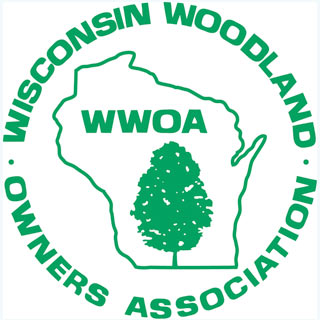News
DNR Seeking Landowners To Host Fall GunDeer Hunt For Hunters With Disabilities
FOR IMMEDIATE RELEASE: May 29, 2025 Contact: Brooke VanHandel, DNR Assistant Deer and Elk Specialist Brooke.VanHandel@wisconsin.gov or 608-354-3492 DNR Seeking Landowners To Host Fall Gun Deer Hunt For Hunters With Disabilities Deadline To Apply Is July 1 Landowners with 60 acres or more are encouraged to apply to host hunters with disabilities for the 2025 Gun Deer Hunt For Hunters With Disabilities.
Rotstop® C is no longer available
Rotstop® C is no longer available HRD Committee members, We just found out that Rotstop® C is no longer available for purchase in North America. The decision to remove Rotstop® C from the North America market was made by the manufacturer, Lallemand Plant Care in December 2024. It sounded that it was a business decision. If you already have the product, you can still use it in the field.
Gov. Evers Declares State of Emergency for Severe Winter Weather in Northern Wisconsin
As of this morning (April 2, 2025), there are still more than 10,000 homes and businesses without power in the Northwoods from Saturday night’s storms. In the coming days and weeks, woodland owners with property in Northern Wisconsin should contact their forester, northern neighbors, or plan to travel north to check on their woodlands. Significant damage to forests in some areas has occurred.
La Crosse County added to the Spongy Moth Quarantine
FOR IMMEDIATE RELEASE: April 1, 2025 Contact: Dan Richter, Public Information Officer, (608) 419-5352, dan.richter@wisconsin.gov MADISON, Wis. – Trapping data collected by the Wisconsin Department of Agriculture, Trade and Consumer Protection (DATCP) indicates that the spongy moth, an invasive insect from Europe that feeds on the leaves of more than 300 tree species, is now established in La Crosse County.
DNR: 750-Acre Big Island Fire In Green Lake County Now 100% Contained
The 750-acre Big Island Fire in the White River Marsh State Wildlife Area in Green Lake County is now 100% contained. / Photo Credit: Wisconsin DNR MADISON, Wis. – The Wisconsin Department of Natural Resources (DNR) today announced that the 750-acre Big Island Fire in the White River Marsh State Wildlife Area in Green Lake County is now 100% contained as of midnight. The fire broke out at 4:30 p.m. Monday, March 17.
MFL bill to open land for Vehicles Dead for Now, could resurface?
MFL bill to open land for Vehicles Dead for Now, could resurface?
DATCP to Host Public Meetings on 2025 Spongy Moth Treatment Plans
DATCP to Host Public Meetings on 2025 Spongy Moth Treatment Plans Wisconsin Department of Agriculture, Trade and Consumer Protection DATCP to Host Public Meetings on 2025 Spongy Moth Treatment Plans FOR IMMEDIATE RELEASE: March 6, 2025 Contact: Dan Richter, Public Information Officer, (608) 419-5352, dan.richter@wisconsin.gov MADISON, Wis. – The Wisconsin Department of Agriculture, Trade and Consumer Protection (DATCP) is accepting public comment on its planned 2025 spongy moth aerial treatment plans.
WDNR Update on Avian Influenza
FOR IMMEDIATE RELEASE: Feb. 14, 2025 Contact: DNR Office of Communications DNRPress@wisconsin.gov DNR Reports Highly Pathogenic Avian Influenza In Wild Merganser Collected From Milwaukee County MADISON, Wis. – The Wisconsin Department of Natural Resources (DNR) today announced that laboratory tests have identified the H5 highly pathogenic avian influenza virus (HPAI) in a wild merganser collected from Milwaukee County last week. Testing was completed at the U.S.
Oshkosh & Wausau Winter Conferences Update
Oshkosh Woodland Owner Conference will still be held and they are working on providing a Zoom option which will be sent out via email to registrants later today. Wausau Woodland Owner Conference will still be held. If you registered for the in person option and want to switch to Zoom, please send an email to wwoa@uwsp.edu no later than Friday, February 7 at 9 pm. We are unable to fulfill requests after this time.
Invasive Species Action Award Nominations Due Feb. 16
Invasive Species Action Award Nominations Due Feb. 16 Home | Donate | Contact Don’t “forget” to submit your nominations for the 21st annual Invasive Species Action Awards. (Forget-me-not is an invasive species that escapes from landscaping and can spread to nearby forests and natural areas, out-competing a diverse range of native plants!) / Photo Credit: Wisconsin DNR Reminder: Invasive Species Action Award Nominations Due Feb.
